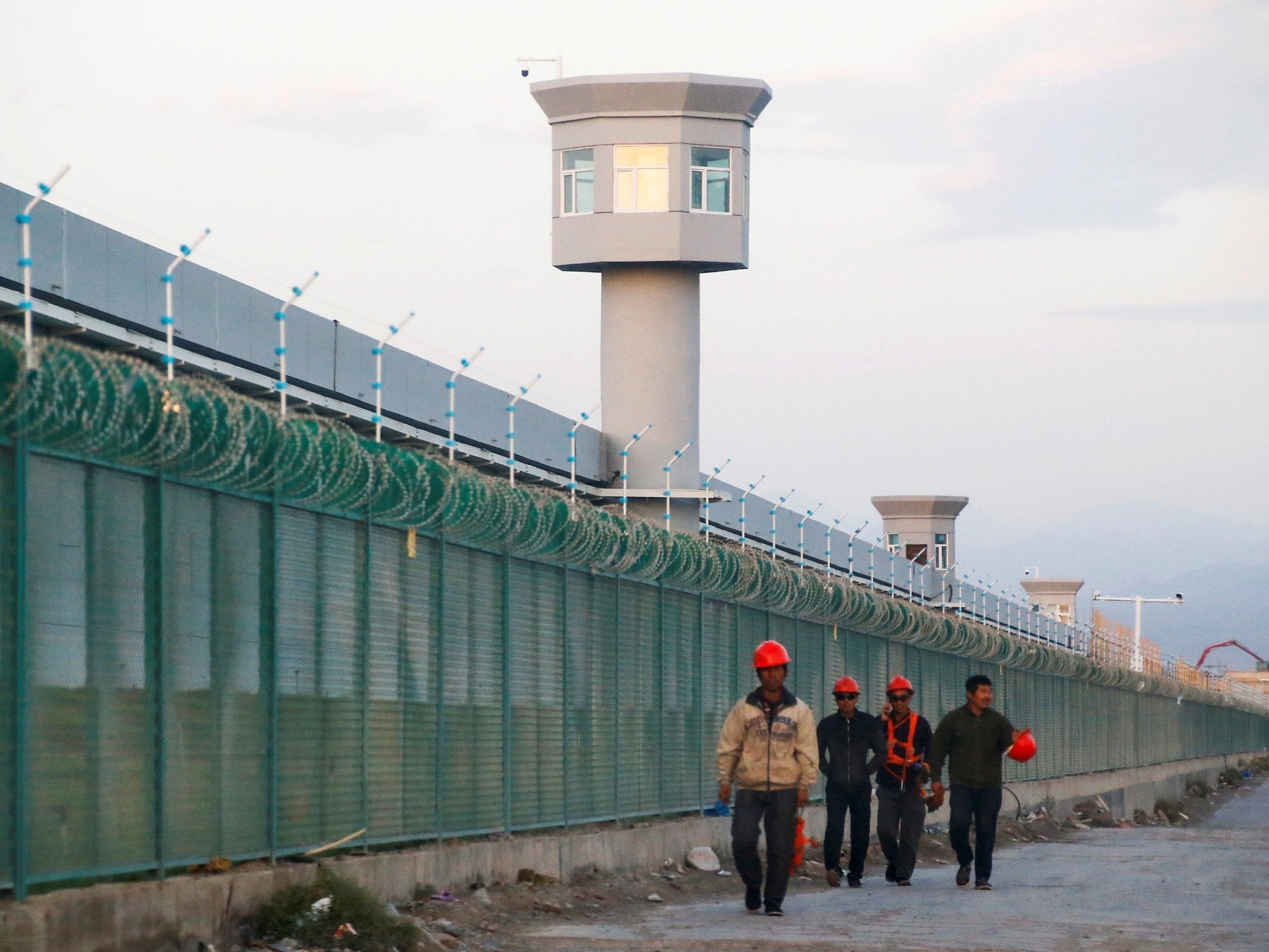Sweden grants refugee status to China's Uighur Muslims, prompting calls for UK to follow suit
Muslims deported to Xinjiang face detainment in re-education camps where inmates have allegedly been tortured

Sweden is to grant refugee status to all Uighur Muslim asylum-seekers from China, prompting calls for other Western governments to follow suit.
The Swedish migration agency said the minority would be automatically considered at risk of persecution in Xinjiang province, where more than a million Uighurs have been detained in re-education camps in a crackdown on Islam.
The country had temporarily halted the deportation of Uighurs in September following an outcry over the decision to reject a family’s asylum claim.
Human rights groups have warned Muslims repatriated to China face harassment, arrest and detainment in internment camps, where inmates are allegedly tortured and forced to renounce their religion.
“We know for a fact that Uighurs who are sent back to China from abroad are sent back to these camps,” Pete Irwin, programme manager of the Uighur World Congress exile group, told The Independent.
Mr Irwin, whose organisation campaigns for Uighur rights around the globe, added: “The primary criteria for being sent the camps, as least as far as we’ve gathered from reporting, is either expression of religious sentiment or travel abroad or some kind of connection abroad. Even if you have family members you’re speaking to abroad you can be sent to the camps.
“All Uighurs who were overseas in the past two years and then returned have been sent to these camps.”
In the face of growing international criticism, China this week issued a lengthy report claiming it had detained 13,000 terrorists and broken up hundreds of “terrorist gangs” in Xinjiang internment camps. It has depicted the centres as vocational training facilities designed to counter Islamist extremism.
But the report presented little evidence of any crimes, and experts believe the camps are part of an aggressive government campaign to erode the identities of the Central Asian groups who have long called the region home and erase its Islamic culture.
China has pressured Uighurs living abroad to return, with authorities reportedly contacting some foreign students and expatriates on messaging apps and threatening their families.
Mr Irwin said Beijing’s overseas embassies had stopped renewing Uighurs’ passports last year, forcing people abroad to choose between returning to Xinjiang or being made stateless.
Germany last year halted Uighur deportations after a 22-year-old asylum seeker was returned to China due to an administrative error. In August his lawyer said he had received “no sign of life” since his expulsion and feared his client had been “detained”.
Sweden’s announcement that it would grant refugee status to Uighur asylum-seekers cited the findings of a United Nations human rights panel, which last year said it had received credible reports up to two million Uighurs and other Muslim minorities had been forced into “political camps for indoctrination”.
“What we’ve seen is that there is quite far-reaching repression by the state,” Carl Bexelius, deputy head of the Swedish Migration Agency’s justice department, told Sveriges Radio this week. “They can arrest and intern people without any criminal charges. People are put in what are described as ‘re-education camps’. This is happening arbitrarily.”
Mr Bexelius said he did not think the new policy would lead to an increase in immigration, adding: “We have relatively few asylum seekers from China, and we made the decision not to deport these groups back in September, and didn’t see an increase after that.”

Steve Valdez-Symonds, director of Amnesty International UK’s refugee and migrant rights programme, said: “We applaud Sweden’s decision to grant protection to all Uighurs from Xinjiang.
“Uighurs have been subjected to a sustained campaign of appalling persecution at the hands of the Chinese authorities there over recent years, and we have raised major concerns about the mass-scale internment of up to a million Uighurs and other Muslim ethnic minorities in giant camps.
“It’s clear that being a Uighur is enough to put anyone at real risk if returned to China, and so any Uighur from China applying for asylum here in the UK should be granted it.”
Uighurs seeking asylum in Britain are currently required to prove they are at risk of serious harm on their native country.
Mr Irwin said he hoped other western governments would follow Sweden’s example in granting the group automatic refugee status.
He added: “A lot of European countries know about the situation on the ground [in Xinjiang] and it’s likely they won’t send [Uighur asylum-seekers] back, but there’s a lot of insecurity that Uighurs are facing now.
“The British government knows quite well about it, but we do continue to push for some sort of policy that shows more symbolic support.”
A UK Home Office spokeswoman said: “The UK has a proud history of granting asylum to those who need our protection and all claims are assessed on their individual merits.”
Join our commenting forum
Join thought-provoking conversations, follow other Independent readers and see their replies
Comments
Bookmark popover
Removed from bookmarks